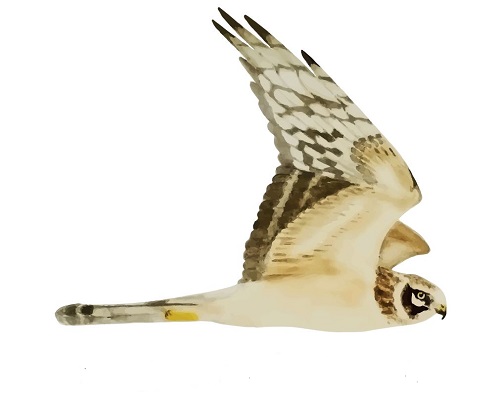Her på Skagen Fuglestations blog bringes korte nyheder i dagbogsformat om hændelser på fuglestationen.
Observations, shopping under a sunny sky
Today everyone went out observing at world’s end 3, the last dune before the tip of Grenen. A few skuas (skarv) and a lot fewer common scoters (sortand) than usual: while the numbers often amount to a few thousands, today we only observed less than 150 throughout the 4 hours.
We took the opportunity to rest during the afternoon and catch up on shopping. Bringing kilograms of pasta sauce, canned goods, and beverages back on bikes with a strong headwind was our achievement for the day!!
Lisa and Simon went to the summerhouse of Simons family at Saltum, but late evening they went for another try to catch more Great Snipes (Tredækkere) at Lindenborg. It was succesful! With two birds caught! They where joined by Hans, Esben and Niels.

Ringmærkning - Lindenborg, Himmerland
Tredækker - 2
Ringmærkning - Fyrhaven
Rødstjert - 1
Total - 3
Folk på stationen: Simon S Christiansen, Ulysse Reverre, Augustin Sticksel, Rosalina Sø Leth-Nissen, Lisa Vergin, Esben Sloth, Hans Christophersen, Niels Eriksen og Elin.
Klik her for at se dagens observationer fra Dofbasen af fugle i Skagen
En succesrig dag
I dag gik turen til Jennes Sø da vi skulle ringmærke fugle ifm. projektet CES. Vi ringmærkede to adulte rødstjerter og én masse andre. Jørgen og hunden Igor kom forbi og sagde hej, og så fik vi også selskab af Rie og Andreas fra DOF. Simon og jeg tog afsted om formiddagen ud til Skiveren for at livestreame en fugletur hvor vi var på jagt efter at se den sortstrubede bynkefugl. Det var en succesfuld tur, og vi så to hanner og en hun.

I dag har vi budt velkommen til Ellin, den nye gæst, som kommer fra Svendborg og skal bo hos os til på søndag.
Augustin har været ude og dele flyvesedler ud på Grenen, og på hjemvejen så han en flok gravænder.
Ringmærkning – Jennes Sø
Rødstjert – 6
Rørsanger – 1
Gærdesanger – 6
Havesanger – 1
Munk – 2
Gransanger – 7
Løvsanger – 16
Broget Fluesnapper – 1
Grå Fluesnapper – 6
Ringmærkning - Fyrhaven
Kærsanger - 1
Total – 47
Folk på stationen: Simon S Christiansen, Ulysse Reverre, Augustin Sticksel, Rosalina Sø Leth-Nissen, Jan Spieierman, Lisa Virgen og Ellin
Klik her for at se dagens observationer fra Dofbasen af fugle i Skagen
A lot of firsts today
Ulysses, Rosalina and me opened the nets at Kabeltromlen this morning although the wind was kind of strong. We were joined by Lisa, Simon, Jan, Grethe and Stig with the ringing. The board of Birdlife Denmark visited us today on the first two rounds at Kabeltromlen and Simon showed them a bit of our ringing work. Rosalina extracted her first birds from the nets and handled her first bird a beautiful male Munk and ringed her first birds, and Jan also ringed his first bird at the Station today, a lot of firsts today! We ringed quite a good number of birds today even though the weather conditions weren´t perfect, the highlight was a juvenile Spotted Flycatcher (Grå Fluesnapper) in one of the later rounds, also the first one I ever ringed.

Our guests Grethe and Stig went to the harbour in the afternoon but unfortunately the didn´t see any special birds. After the ringing we helped our guests from Birdlife Denmark a bit with cleaning the dishes and preparing coffee. The Volunteers were invited for dinner in the Blink restaurant at the lighthouse by the board of Birdlife Denmark for a delicious dinner in the evening.

Ringmærkning – Kabeltromlenkrattet
Rødstjert – 2
Solsort – 1
Rørsanger – 3
Gærdesanger -1
Tornsanger – 4
Havesanger – 1
Munk – 1
Grandanger – 6
Løvsanger – 11
Grå Fluesnapper – 1
Total – 28
Folk på stationen: Simon S Christiansen, Ulysse Reverre, Augustin Sticksel, Rosalina Sø Leth-Nissen, Jan Spieierman, Lisa Virgen, Grethe & Stig.
Klik her for at se dagens observationer fra Dofbasen af fugle i Skagen
Wind in the north, winter is coming ?
The weather was unforgiving this morning… Lots of wind that made observations rough and with sand flying everywhere. Augustin, Rosalina, Jan and I had to hide behind a bunker to keep our scopes protected. With these windy conditions, we saw several great Skuas, foraging and harassing gulls for fish.
Simon and the rest of us have been preparing for the arrival of the members of the board of BirdLife Denmark (Danish Ornithological Society ó DOF in Danish). They joined us in the evening and held a board meeting. They will stay for the weekend and join us for the different activities.
We look forward to the wind settling down in the next few days so we can resume ringing at Kabeltromlen and Jennes Sø. In the meantime, our attempts at night catching have been unsuccessful, the ringed plovers (stor præstekrave) and dunlins (almindelig ryle) are way too elusive for our primitive catching technique.
Folk på stationen: Simon S Christiansen, Ulysse Reverre, Augustin Sticksel, Rosalina Sø Leth-Nissen, Jan Spieierman, Grethe & Stig og Sigrid Andersen.
Klik her for at se dagens observationer fra Dofbasen af fugle i Skagen
Besøg og forberedelse
Som det blev nævnt i sidste opslag, var vi på nattur til Støvring og fik fanget og ringmærket den sjældne Tredækker! Vi kom dog først hjem kl. 3 om natten og fik derfor lov til at sove længe i dag. Grundet den kraftige vind og den lange aften i går har dagen på stationen stået på rengøring og forberedelse til fredag hvor der skal holdes bestyrelsesmøde. Sigrid Andersen, direktøren for DOF, og Niels Eriksen, bestyrelsesformand for stationen, kom med frokost til os ifm. et møde. Det blev vi meget glade for. Og så har vi næsten tømt glasset med Grethes hjemmelavede havtorn- og æblemarmelade!
Grethe og Stig har været en tur forbi Jennes Sø på blomsterkig og museumsbesøg i Skagen.
Vi har i eftermiddags haft en lille fotosession i mødelokalet hvor vi gennemgik forskellige fugle vi har ringmærket og diskuterede lidt frem og tilbage om fuglenes alder, køn og fældning, etc.
I nat skal Ulysses og Augustin på natfangst igen, denne gang er målet at ringmærke en Islandsk Ryle.
Folk på stationen: Simon S Christiansen, Ulysse Reverre, Augustin Sticksel, Rosalina Sø Leth-Nissen, Lisa Vergin, Grethe & Stig, Niels Eriksen og Sigrid Andersen.
Klik her for at se dagens observationer fra Dofbasen af fugle i Skagen
Tredækker
In the morning Rosalina and Ulysses went out for observations at Nordstrand with Jan Speiermann but strong winds and bad weather conditions unfortunately didn´t allow for a lot of bird sightings. While they were out me and Simon checked the stations bikes and prepared them for the bike mechanic to pick them up and repair some of them. The guests cooked some delicious Havtorn and apple marmalade yesterday and gave two glasses to us today, thank you very much Grethe and Stig! When Rosalina and Ulysses came back Simon checked some of the recent ringing data with Ulysses, after that Simon helped me with identifying and entering the voices from the night recorder I put out in the last nights to record some nocturnal migrations. We found some Golden Plovers, Grey Herons and Dunlins but nothing uncommon yet.
Click here for overview of the recording on the night between the 22nd - 23rd of August at Trektellen.
Click here for overview of the recording on the night between the 23rd - 24th of August at Trektellen

In the afternoon Ulysses baked a apple cake and Simon bought some sausages for a barbeque dinner at Simons fathers house in Støvring . After that we dove to a field nearby and caught a Great Snipe (Tredækker), only a handful of those has been caught in Denmark so far. We got some help with the catching from Lars and Lars. This has been a very nice and successful trip to the South.

Ringmærkning (Lindenborg, Himmerland)
Tredækker - 1
Folk på stationen: Simon S Christiansen, Ulysse Reverre, Augustin Sticksel, Rosalina Sø Leth-Nissen, Lisa Vergin, Grethe & Stig , Lars Bo Jakobsen, Lars Grøn, Jan Speiermann.
Klik her for at se dagens observationer fra Dofbasen af fugle i Skagen
God dag og fascinerende fugle
I dag var en meget succesfuld dag på fuglestationen, og især ved Kabeltromlen, da Augustine, Ulysses og Oluf ringmærkede en Blåhals og en Stenpikker!
Ulysses pointerede dog at fuglene de seneste morgener dukker rigt op de første par runder, men at de ikke er så mange efter solen er kommet et godt stykke op på himlen.
Til gengæld nød Grethe og Stig solen i dag da de tog en tur på stranden og kiggede på fugle. Grethe har også været I gang med at lave marmelade med skovfogedæbler og havtorn, og den glæder vi os meget til at smage!
Augustine har gennemgået nattens filerne fra optageren og hørt om der skulle være nogle fuglelyde. Der er vist godt med bid denne gang, men vi finder ud af mere vedr. den sag i morgen efter databehandlingen ????
Simon er kommet tilbage til stationen efter nogle meget begivenhedsrige dage, med bl.a. Musvåge-bingo som blev live-streamet i søndags. Videoen kan findes inde på ”Fugle For Alle”s Facebookside. Derudover deltog han i eventen ”Walk ’n’ Roll”, en årlig begivenhed med fokus på handicap med aktiviteter som fx at gå – eller rulle – en tur sammen. Simon har derfor gået 7 km og kigget på fugle sammen med andre deltagere af eventen på sin tur. Desuden har han spottet en leucistisk Almindelig Ryle. Leucistiske fugle betyder at fuglen mangler melanin, dvs. farvestof, i dens fjerdragt. Det er ikke albinisme, men den læner sig op af. Albinisme er når fuglen er helt hvid med røde øjne og lyserøde ben og næb etc.
Alm. Ryle, leucistisk:

Jeg har selv løbet lidt ærinder inde i Skagen, hvor jeg fik øje på to store rovfugle som jeg dsv. ikke kunne identificere så nemt da jeg havde glemt både briller kikkert..
Og så er det muligt at se flere billeder af den smukke Blåhals og den smukke Stenpikker på Facebook og Instagram.
Ringmærkning – Kabeltromlen
Solsort – 1
Rødsjert – 6
Løvsanger – 7
Kærsanger – 1
Stenpikker – 1
Rørsanger – 4
Gærdesanger – 2
Blåhals - 1
Munk – 1
Tornsanger – 6
Havesanger – 1
Total – 31
Folk på stationen: Simon S Christiansen, Ulysse Reverre, Augustin Sticksel, Rosalina Sø Leth-Nissen, Grethe & Stig, Oluf Lou, Jan Spiermann, Jørgen Kabel.
Klik her for at se dagens observationer fra Dofbasen af fugle i Skagen
Sunny day at the Cable Drum
Today was…. Drumroll please… Ringing at Kabeltromlen!! Oluf joined us today, The day was a quiet one, with a hot weather hitting in the low twenties. We almost had to whip out the sunscreen on the last rounds. We had a few visitors throughout the day, our current floor neighbors, Grethe and Stig, Jan, as well as Ralph, a friend of mine, coincidently on a road trip in the same area. The highlight was a juvenile tree pipit (skovpiber) with a hard-to-find moult limit.
Augustin went to the Grenen tip to observe and count roosting gulls. We try and check for color ringed gulls to follow Norwegian and Danish Gull projects. He also tried to advertise for the Lighthouse and exhibition.
Ringmærkning – Kabeltromlen
Solsort – 2
Rødsjert – 1
Løvsanger – 4
Kærsanger – 3
Skovpiber – 1
Rørsanger – 4
Gransanger – 3
Gærdesanger – 1
Blåmejse - 1
Tornsanger – 1
Havesanger – 1
Total – 22
Folk på stationen: Simon S Christiansen, Ulysse Reverre, Augustin Sticksel, Rosalina Sø Leth-Nissen, Grethe & Stig, Erik Christophersen, Jan Speiermann, Jørgen Kabel.
Klik her for at se dagens observationer fra Dofbasen af fugle i Skagen
Nye gæster og ny Danmarkshistorie
I dag ankom Grethe og Stig, denne uges nye gæster som besøgte os i september 2020. Vi ser frem til at tilbringe den næste uge med dem.
I nat var der dramatiske hændelser. Vi var de første i Danmarkshistorien til at fange og ringmærke en Lille Stormsvale med net om natten!
Det skulle selvfølgelig fejres, så udover den store opmærksomhed som natfangsten fik ved fangsten omkring kl. 01.30, blev der selvfølgelig drukket et lille glas champagne, som Oluf var så flink at medbringe til fremvisningen :) Mere læsning om nattens stormsvale vil komme som nyhed på netfugl senere i ugen.
Jeg selv lavede pandekager i morges da de trætte knægte sov, og var til BioBlitz, som gik ud på at lære mere om biodiversiteten rundt omkring Det Grå Fyr. Pandekagerne var dog blevet meget populære da jeg kom tilbage :) Og så fik vi besøg af min far som også var meget underholdt af hvepse-hændelsen fra Ulysse's blogindlæg i fredags :)
Ringmærkning - Grenen
Lille Stormsvale - 1
Total: 1
Folk på stationen: Simon S Christiansen, Ulysse Reverre, Augustin Sticksel, Rosalina Sø Leth-Nissen, Grethe & Stig, Erik Christophersen, Jan Spiermann, Jørgen Kabel m.fl..
Klik her for at se dagens observationer fra Dofbasen af fugle i Skagen
Kirstens last day
Ulysses and me opened the nets at Kabeltromlen at 5:30 o’clock today, we had a successful morning with a lot of birds. We had some local visitors at the ringing site, Jan Spiermann, Jørgen Kabel his wife Agnete and their dog Igor as well as Erik Christophersen. Kirsten got to ring her last bird of her stay, a beautiful male Redstart (Rødstjert) she will leave us tomorrow after she stayed at the lighthouse for one week and helped us with the ringing. Rosalina went out observing with Knud and they counted some Razobills (Alk) and Red-Troated Divers (Rødstrubet Lom).

In the afternoon we cleaned the apartment and the laboratory after that we had our evening meeting and finished our planning for our mission to catch and ring some Storm Petrels (Lille Stromvale) tonight.
Ringmærkning – Kabeltromlen
Rørsanger – 3
Gærdesanger – 4
Løvsanger – 9
Tornsanger – 4
Skovskade – 1
Rødstjert – 3
Skovpiber – 2
Munk – 1
Broget Fluesnapper – 1
Ringmærkning - Fyrhaven
Rødstjert - 1
Total – 29
Folk på stationen: Simon S Christiansen, Ulysse Reverre, Augustin Sticksel, Rosalina Sø Leth-Nissen, Kirsten Bregn, Erik Christophersen, Jan Spiermann, Jørgen Kabel.
Klik her for at se dagens observationer fra Dofbasen af fugle i Skagen








